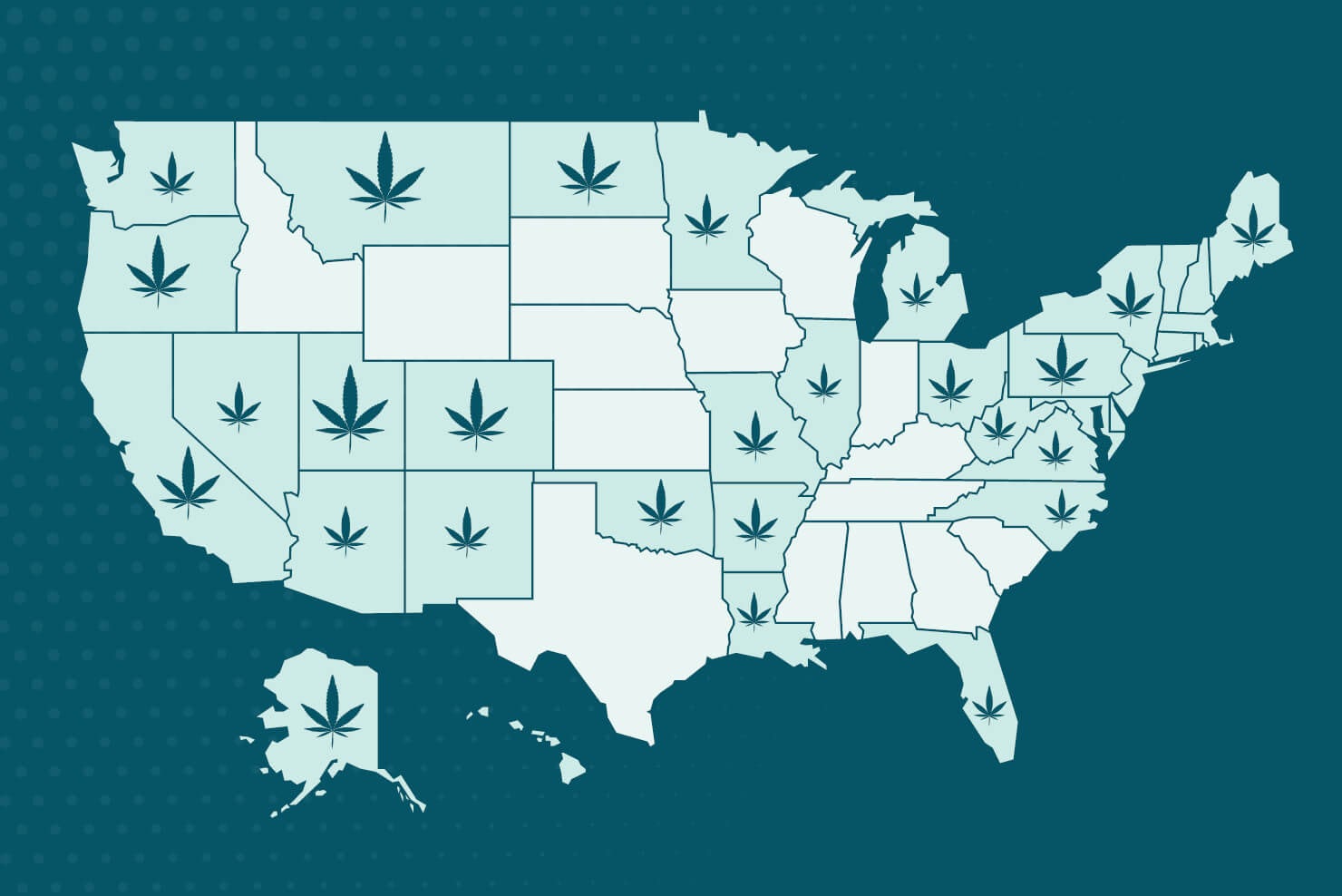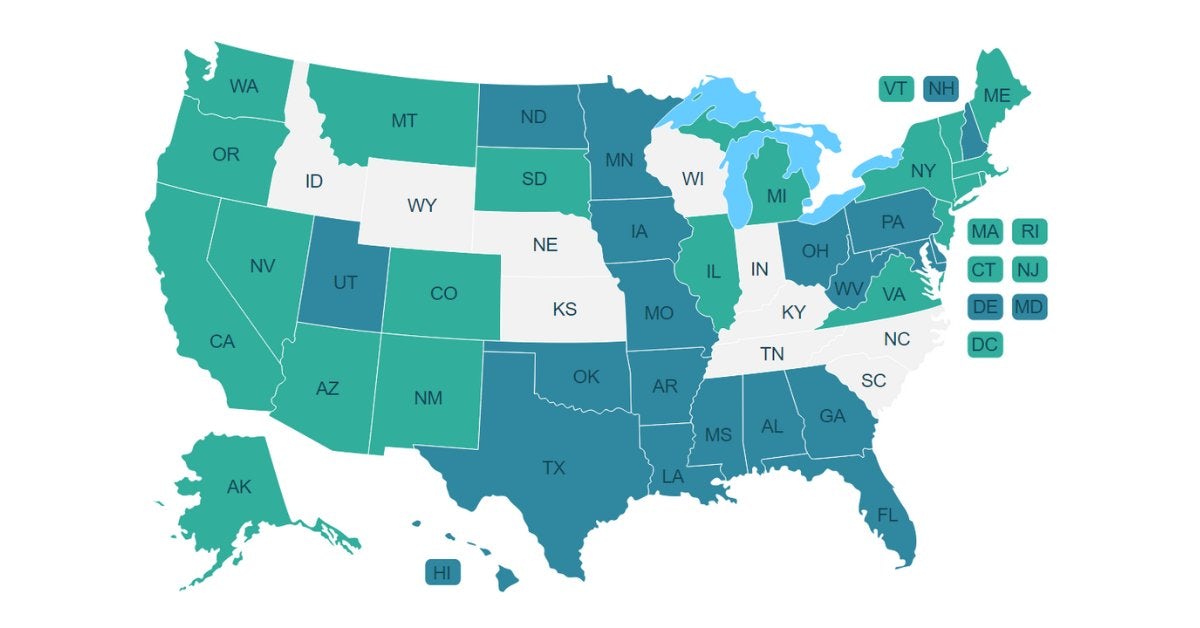Medical: Yes
Recreational: Yes
Reciprocity: No
In October 2020, Vermont became the 11th state to legalize an adult-use recreational cannabis program, when Governor Phil Scot allowed Senate Bill 54 to become law without his signature and immediately legalized possession of up to one ounce and home grow. In October 2022, the first three adult-use dispensaries opened to anyone over 21.
Vermont legalized medical marijuana in 2004 but the first dispensary did not open in the state until 2013. Patients may also cultivate up to two mature plants and seven immature plants.
How to get a medical card in vermont
Prospective medical marijuana patients must apply online through the state’s official application portal.
The patient application requires submitting personal details as well as selecting the dispensary they will use. For patients under the age of 18, the parent or guardian who is serving as a caregiver will have to fill out their details in the form.
If they want to cultivate for personal use they must also stipulate that on the form.
Along with the patient application, the prospective patient must also submit their health care professional verification form, which must come from a licensed practitioner with whom the applicant has a “bona fide health care professional-patient relationship.”
If the patient applying has PTSD as their qualifying condition, they must also submit a mental health care provider form.
The fee for the application and subsequent annual renewal is $50.
Qualifying conditions for medical cannabis in Vermont
The qualifying conditions for which patients can receive medical cannabis include:
- Cancer
- Multiple sclerosis
- Positive status for human immunodeficiency virus, acquired immune deficiency syndrome
- Glaucoma
- Crohn’s disease
- Parkinson’s disease
- Post-traumatic stress disorder (provided the Department confirms the applicant is undergoing psychotherapy or counseling with a licensed mental health care provider)
- A disease or medical condition or its treatment that is chronic, debilitating and produces and one or more of the following intractable symptoms: cachexia or wasting syndrome, chronic pain, severe nausea, or seizures.
Reciprocity
Vermont law does not honor out-of-state medical marijuana licenses.
Taxes and medical marijuana in Vermont
Medical marijuana is exempt from sales and use tax in Vermont under the prescription drug statutory definition. Marijuana-related supplies are not exempt.
Under Senate Bill 54, adult-use retail cannabis sales will be taxed at ten percent with a potential one percent local option tax for municipalities that decide to allow cannabis dispensaries.
Where to buy cannabis in Vermont
The first three adult-use dispensaries opened in Vermont on October 1, 2022, in Burlington, Rutland, and Middlebury. More are expected to open throughout 2023.
Medical patients can attain medical marijuana only from their designated dispensary and must pay in cash. As of October 2022, there were only five licensed dispensaries in the state.
Dispensaries are allowed to sell dry flowers, pre-rolls, edibles, vapes, concentrates, and topical applications of marijuana.
CBD regulations
CBD flower and products are legal in Vermont and can be found at both dispensaries and hemp shops throughout the state.
Can you grow your own weed?
Yes, Vermont residents can grow up to six plants in a household, as long as only two plants are flowering at a given time.
Visiting Vermont – can you buy or bring marijuana products?
Yes, you can purchase cannabis products in Vermont! In October 2022, the first three public dispensaries opened for all adults over 21. Up to 100 dispensaries are expected to be licensed over the next year.
Traveling over state borders with cannabis is still federally illegal in the US. However, several states surrounding Vermont, including Massachusetts and New York, have legalized recreational cannabis use. You can bring CBD over state borders.
Sign up for bi-weekly updates, packed full of cannabis education, recipes, and tips. Your inbox will love it.

 Shop
Shop Support
Support













